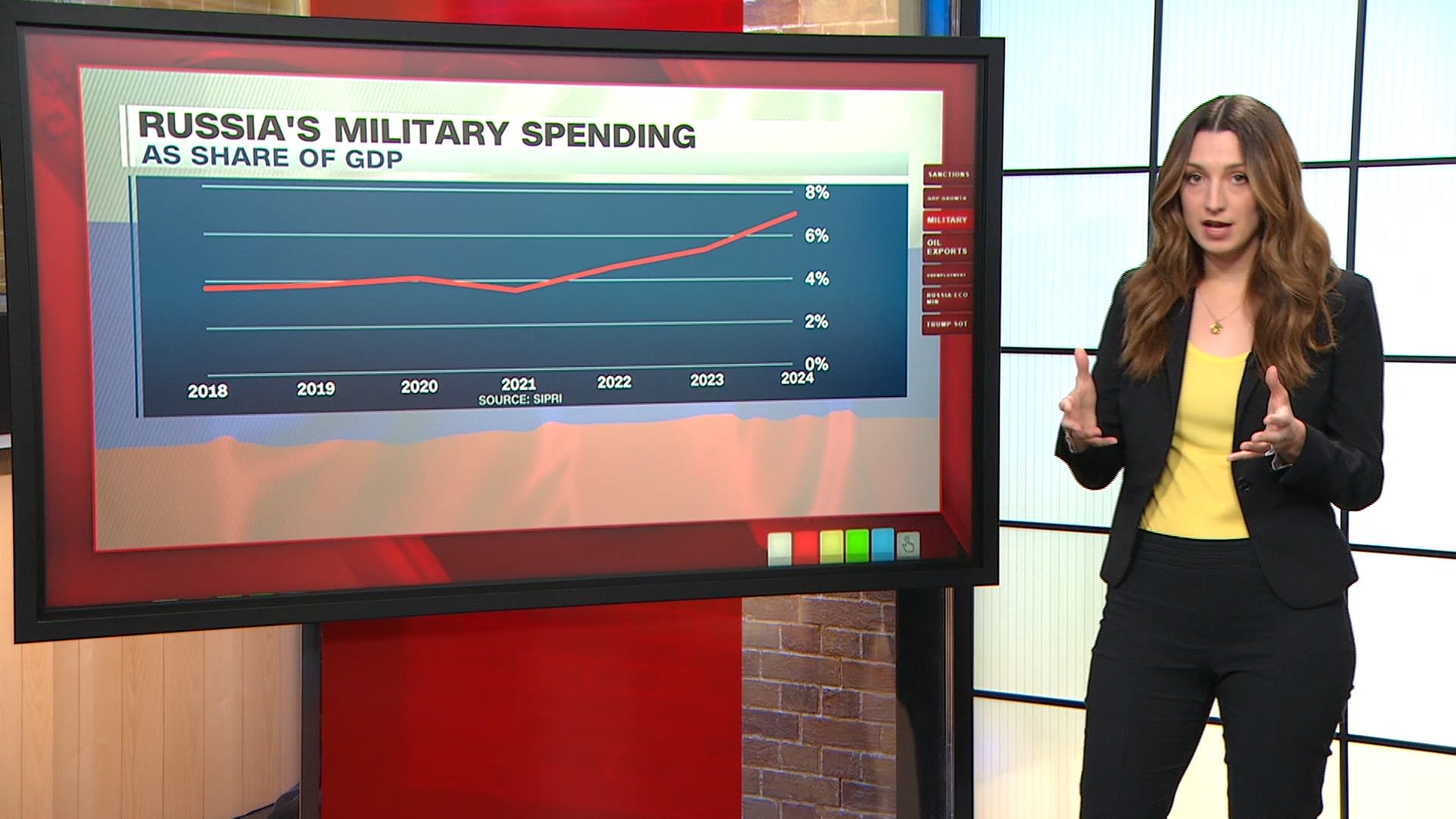Health
Trump and Putin Meet in Alaska: Business Talks Amid Challenges

US President Donald Trump and Russian President Vladimir Putin are set to engage in crucial discussions in Alaska that could potentially lead to a peace agreement regarding the ongoing conflict in Ukraine. The outcome of these talks may not only influence diplomatic relations between Moscow and Washington but also open avenues for American businesses to re-enter the Russian market—a scenario that seemed unlikely just months ago.
The significance of the meeting is underscored by Trump’s remarks aboard Air Force One on Friday, where he stated, “I noticed (Putin’s) bringing a lot of business people from Russia, and that’s good. I like that, because they want to do business, but they’re not doing business until we get the war solved.” This sentiment reflects a possible shift in the narrative surrounding economic cooperation between the two nations, contingent on progress in peace negotiations.
Attending the discussions alongside Putin are notable figures such as Anton Siluanov, Russia’s finance minister, and Kirill Dmitriev, a senior economic negotiator and head of Russia’s sovereign wealth fund. Trump expressed a willingness to explore business opportunities if substantial progress is made, acknowledging that Russian officials are eager to engage with the American economy.
Despite these overtures, the prospect of American companies returning to Russia faces substantial hurdles. Following Putin’s unprovoked invasion of Ukraine in February 2022, a significant corporate exodus ensued. More than 1,000 global companies have exited or curtailed operations in Russia, according to a list compiled by the Yale School of Management. Major American firms like Apple, Goldman Sachs, and Mastercard were among those that exited, leaving a void filled increasingly by Chinese firms and local imitators of Western brands.
One striking example of this shift is Stars Coffee, which emerged after Starbucks left Russia, adopting a logo reminiscent of the original brand. This development raises questions about whether Russian consumers would embrace a return of Western companies should they decide to re-enter the market.
The energy sector presents yet another layer of complexity. Western sanctions have targeted Russia’s oil and gas revenues, which accounted for 30% of the federal government budget last year, according to analysis by the Oxford Institute for Energy Studies. The European Union has substantially reduced its imports of Russian crude oil and natural gas, shifting its energy reliance. In contrast, countries like India have increased their imports, with Russia now supplying 36% of India’s crude oil.
Trump has threatened to impose tariffs on nations that continue to purchase Russian oil, aiming to pressure Putin into negotiations. Yet, India remains steadfast, asserting that Russian oil is critical for its energy security, particularly for its population of 1.4 billion. The G7 nations have also implemented a price cap on Russian oil, complicating any potential American efforts to re-engage with Russia without international consensus.
Challenges extend beyond geopolitical tensions; the landscape for conducting business within Russia has deteriorated since the onset of the war. Financial transactions have become increasingly difficult due to sanctions that have barred several Russian banks from accessing the SWIFT network, which is essential for global financial communications. Janis Kluge, a researcher at the German Institute for International and Security Affairs, highlighted that re-admitting these banks would require cooperation from the EU, complicating any moves toward economic normalization.
Corruption also poses significant risks for businesses looking to invest in Russia. The country has ranked poorly on the Corruption Perceptions Index, falling to 154th place in 2024, tied with countries like Azerbaijan and Honduras. This persistent issue may deter American businesses from considering a return, prompting them to weigh the risks against potential rewards.
As Trump and Putin prepare for their meeting, the outcomes remain uncertain. The discussions could potentially reshape the political and economic landscape, but the path to establishing business relations with Russia is fraught with complications that will require careful navigation. The world will be watching closely as these two leaders engage in talks that could redefine international relations and economic interactions in the years to come.
-

 Lifestyle3 months ago
Lifestyle3 months agoLibraries Challenge Rising E-Book Costs Amid Growing Demand
-

 Sports3 months ago
Sports3 months agoTyreek Hill Responds to Tua Tagovailoa’s Comments on Team Dynamics
-

 Sports3 months ago
Sports3 months agoLiverpool Secures Agreement to Sign Young Striker Will Wright
-

 Lifestyle3 months ago
Lifestyle3 months agoSave Your Split Tomatoes: Expert Tips for Gardeners
-

 Lifestyle3 months ago
Lifestyle3 months agoPrincess Beatrice’s Daughter Athena Joins Siblings at London Parade
-

 World3 months ago
World3 months agoWinter Storms Lash New South Wales with Snow, Flood Risks
-

 Science3 months ago
Science3 months agoTrump Administration Moves to Repeal Key Climate Regulation
-

 Science2 months ago
Science2 months agoSan Francisco Hosts Unique Contest to Identify “Performative Males”
-

 Business3 months ago
Business3 months agoSoFi Technologies Shares Slip 2% Following Insider Stock Sale
-

 Science3 months ago
Science3 months agoNew Tool Reveals Link Between Horse Coat Condition and Parasites
-

 Sports3 months ago
Sports3 months agoElon Musk Sculpture Travels From Utah to Yosemite National Park
-

 Science3 months ago
Science3 months agoNew Study Confirms Humans Transported Stonehenge Bluestones









